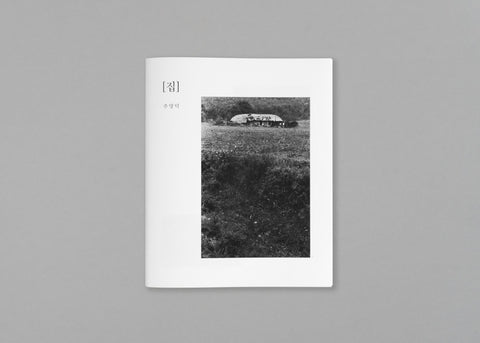
Home
Myung Duck JooDatz Press
2021
Text by Mihyun Kang
softcover
52 pages
7.28 x 9.06 in (18.5 x 23 cm)
“Though I still continue to work with this theme today, in my early 30s, I have always been trying to pass on, through my photography, the beautiful natural environment and traditions, the simple hearts of the people of my motherland, to the generations that have lost all such things.” _Joo, Myung Duck
This book begins with the landscape of a traditional Korean house and family that disappeared with urban development in the 60s and 70s. This is a project continued by Joo, a pioneer of Korean documentary photography, and actively recorded the landscape of Korean traditional life under the subjective intention of capturing our traditional values and beauty. Within the category of records, the landscape leads to the mountains of Korea, which are expressed abstractly. His mountain, which expresses a highly pure mental world that is difficult to describe in language, is closer to the world of senses. In a landscape photograph captured with lines and light in black and white, he encounters his “motherland” that exists as nostalgia. His work to reveal the beautiful nature and tradition of the “motherland,” which has been around for over 50 years, and the simple heart of people through photographs, is implicitly contained in this book.
--
Joo, Myung Duck was born in 1940 in Hwanghae Province, Korea, but crossed the 38th parallel in 1947 and settled in Seoul. Joo, who had started out as an amateur photographer began gaining a reputation when his 1966 solo exhibition “Photo Essay: Harry Holt Memorial Orphanage” created a public sensation. He continued building his world of documentary photography, with series such as ‘Korea’s Foreign’, ‘Korean Families’ and ‘Home of the Great Poem’. Later he expanded his themes to Korean nature, going beyond documentation to present unique views of Korean images in his works. As one who has not only integrated traditions of Korean documentary photography in his work, but also extended their contemporary significance through creative interpretation, Joo is unrivaled as a first-generation Korean photographic artist.

